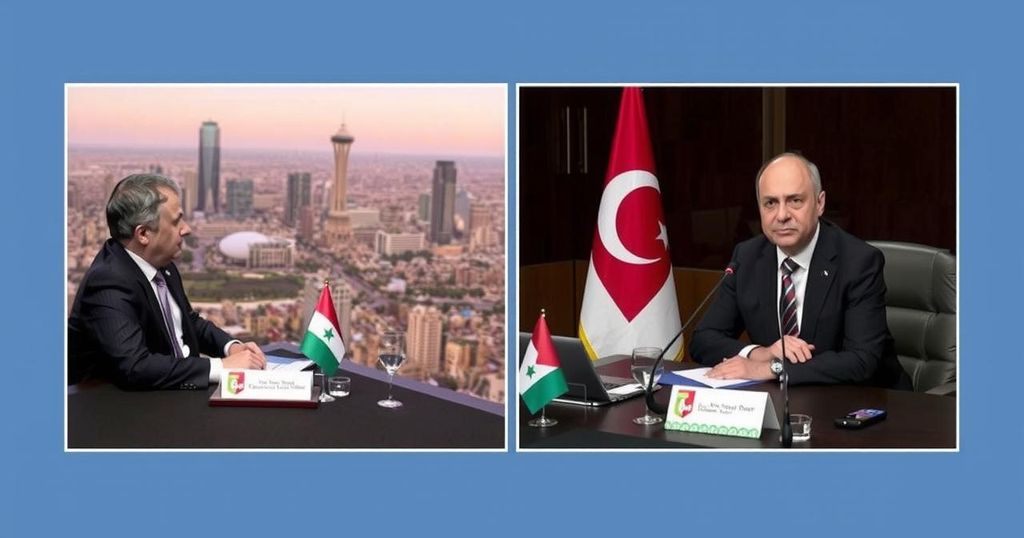Israeli soldiers are increasingly voicing dissent against military orders in the Gaza conflict, citing moral and ethical concerns. Soldiers like Yotam Vilk and Yuval Green recount disturbing experiences, leading to a small movement of about 200 soldiers signing a letter to refuse service. This phenomenon emerges amidst international pressure for a ceasefire and accusations of war crimes against Israel, highlighting the psychological consequences of war on soldiers and a possible shift in military ethics.
The ongoing Gaza conflict continues to evoke significant dissent among Israeli soldiers, leading some to refuse service due to ethical concerns. Among them, 28-year-old Yotam Vilk recounts the haunting experience of witnessing the shooting of an unarmed Palestinian teenager, highlighting a broader issue within the Israeli military’s rules of engagement. This sentiment is echoed by other soldiers who express distress over orders to destroy homes and the indiscriminate killing of Palestinians.
In recent months, a small group of approximately 200 soldiers has united in a movement advocating for a ceasefire, emphasizing that their actions should not be seen in isolation but as part of a larger trend of dissent within the ranks. This comes amidst increasing pressure on the Israeli government and Hamas to de-escalate tensions, with international calls for a ceasefire gaining momentum. Although the military maintains that it does not intentionally target civilians, human rights organizations have criticized the state’s actions in Gaza and launched investigations into alleged war crimes.
Further, testimonies from soldiers like 27-year-old Yuval Green reveal the psychological toll of participating in the conflict, as he described his moral injury upon witnessing the destruction and loss of life. The Soldiers for the Hostages group is diligently working to amplify the dissenting voices, organizing events to discuss these grievances and seeking more signatures to their cause. However, their actions have not been universally accepted; many view these refusals as undermining the military’s operational integrity.
Collectively, these soldiers paint a complex picture of war, where loyalty to one’s country conflicts with moral responsibilities. As this dialogue unfolds, the potential for changes in military policy and public sentiment regarding the conflict may reshape the future of Israel’s military engagement in Gaza.
The article discusses the growing dissent among Israeli soldiers regarding their involvement in the ongoing Gaza conflict, as evidenced by testimonies from soldiers who have witnessed or participated in actions they consider unethical. With a backdrop of a protracted conflict that began intensifying in October 2023, soldiers like Yotam Vilk and Yuval Green have started speaking out against military orders they view as morally questionable. The piece explores the complex interplay of personal ethics, military duty, and the overarching political climate, in light of the escalating pressures for a ceasefire from international figures and rights organizations accusing Israel of potential war crimes. This context is essential in understanding the soldiers’ responses and the ethical dilemmas they face, further compounded by the psychological impacts of their experiences in combat. The impact of public sentiments regarding military actions in Gaza, combined with calls for accountability, creates an atmosphere ripe for reflection on the consequences of these military actions.
In summary, the article illustrates the rising movement among Israeli soldiers who are beginning to refuse service based on ethical objections to their orders in the Gaza conflict. Through personal anecdotes, such as Vilk’s and Green’s experiences, the narrative conveys the profound moral dilemmas faced by soldiers in combat, juxtaposed with growing pressures for a ceasefire. The broader implications of these dissenting voices may prompt future discourse on military engagement, ethics, and accountability, amidst an ongoing conflict that continues to claim lives and create profound suffering.
Original Source: www.arabnews.com






